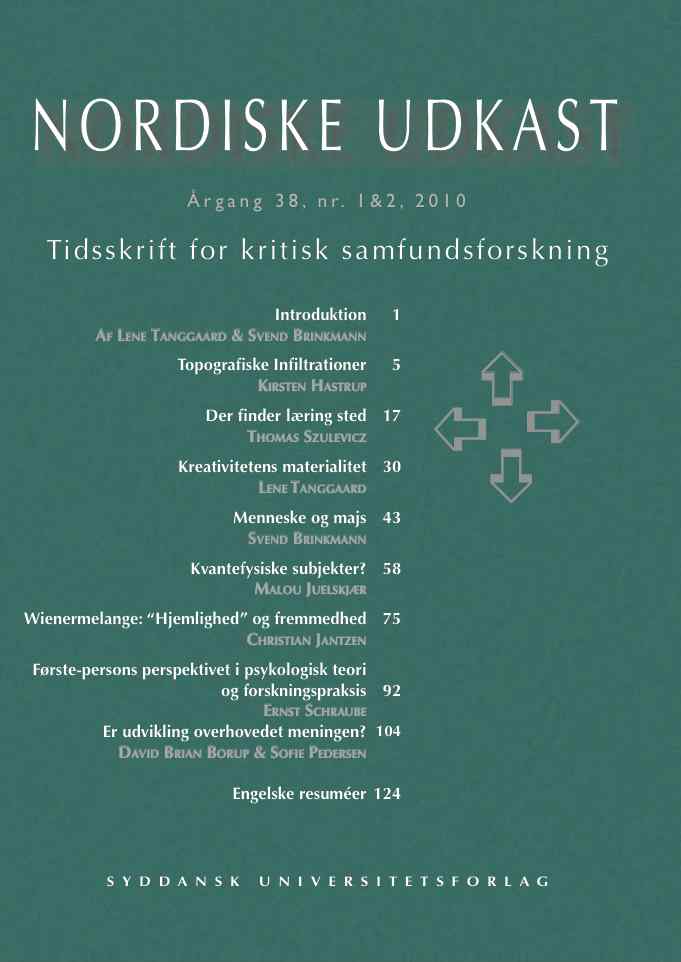Udfordringer til en realistisk samfundsvidenskab
Udfordringer til en realistisk samfundsvidenskab
DOI:
https://doi.org/10.7146/nu.v38i1.133819Abstract
The author argues in favour of the topographi- cal turn, by acknowledging that human beings and landscapes are mutually constituting. This implies that topography infiltrates society, and that social and spatial orientations are two sides of the same coin. The turn has methodological consequences, because it implies an acknow- ledgement of the unbounded nature of people’s connections to both closer and more distant parts of their environment. This again requires a new awareness of any closure of the field of investigation as analytical rather than empiri- cal. Any social complexity is a consequence of a bottom-up process in a moving world that is never given nor fixed. Therefore, the analyst’s position and knowledge interest contribute to the definition of the field and its scale. This challenges conventional understandings of rea- lism, wich must now incorporate the researcher within the field. Consequently, the rightness of the exposition must be argued for with refer- ence to the specifics of place as well as to the intersubjective nature of interpretation, which effectively impedes mere speculation.




